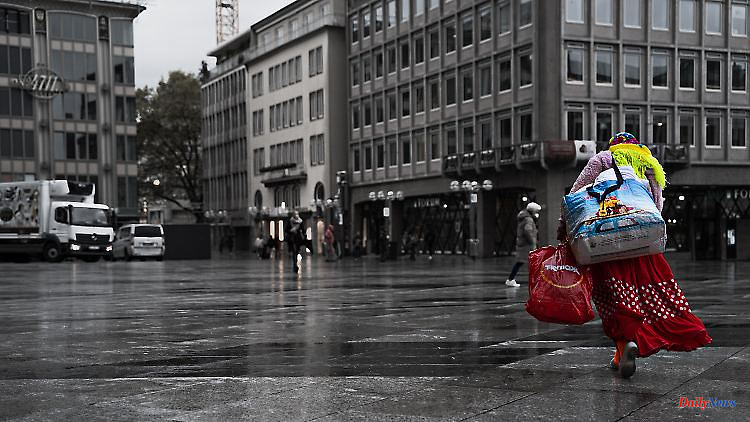Food, heating, transport: In 2022, many things will have become significantly more expensive. But inflation hits people who live at or below the poverty line particularly hard, according to a study by the DGB. Apparently, the aid decided by the federal government does not arrive where it is needed.
According to a DGB study, Hartz IV recipients lost purchasing power, some significantly, at the end of last year. In fact, they slipped below the subsistence level, as the "Süddeutsche Zeitung" reported, citing the study by the German Federation of Trade Unions.
This raises the question of whether the federal government has actually kept its promise not to leave anyone alone in the energy crisis. This applies in particular to the recipients of Hartz IV, which was replaced by the new citizen's income at the turn of the year.
Inflation had risen extremely, first due to the corona pandemic and then due to the energy crisis resulting from the Ukraine war. The Federal Statistical Office estimated it at 7.9 percent for the whole of 2022 - the highest value since 1951. To compensate for the hardship, the federal government provided relief packages of around 200 billion euros. Some of these, such as one-off payments for adults and children or the nine-euro ticket for local public transport, also benefited Hartz IV recipients.
Overall, however, according to the DGB calculations, the relief was far from offsetting the inflation, as the newspaper further reported. An unemployed single parent with a ten-year-old child lost around 750 euros per year, a single person 470 euros, a couple with two children aged 14 and 16 around 1600 euros. The losses were therefore somewhat lower for people who increased their pension or wages because they were also entitled to the federal government’s energy allowance of 300 euros. The losses are likely to have hit the beneficiaries hard, as many of them have no financial reserves.
The quote "You'll never walk alone" did not apply to the recipients of basic security last year "financially, definitely not", criticized DGB board member Anja Piel, alluding to a well-known quote from Chancellor Olaf Scholz. With the introduction of citizen income on January 1st, inflation will now be compensated, the standard rate will rise to 502 euros, i.e. by 11.8 percent. According to the report, however, the DGB criticizes that the recipients will not be protected from high inflation rates in the future either; the annual mechanism for adjusting the standard rates is insufficient.
The Ministry of Labor announced that the federal government had "enacted a whole series of measures to cushion the worst consequences of the price increases". The DGB study cannot yet be evaluated. However, it is incomprehensible that the immediate child supplement of 20 euros per month from July was not included in the calculation, according to the ministry. According to the report, the DGB argued that this was not intended to compensate for inflation, but rather to bridge the gap until the planned basic child security system.












